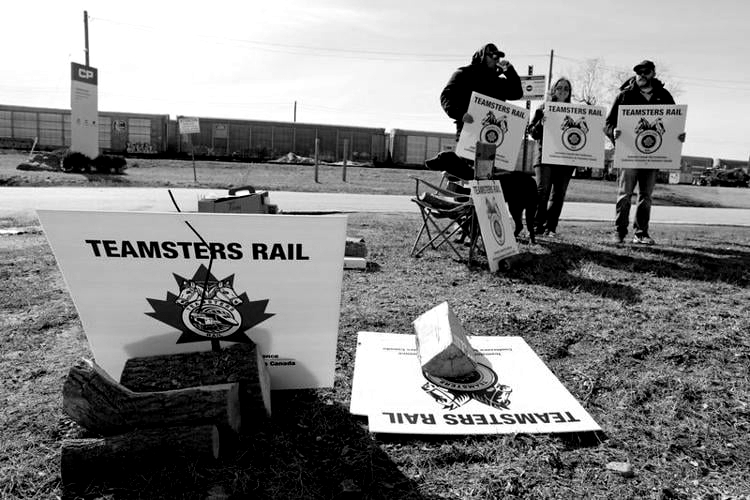On August 22, the Canadian government acted swiftly to resolve an unprecedented rail stoppage by announcing plans to request that the country’s industrial relations board issue a back-to-work order, which is expected to be implemented soon.
Earlier that day, Canada’s two largest railroads, Canadian National Railway (CN) and Canadian Pacific Kansas City (CPKC), had locked out over 9,000 unionized workers, causing a simultaneous rail halt. Business groups warned that the disruption could lead to hundreds of millions of dollars in economic losses.
As the world’s second-largest country by area, Canada relies heavily on railways for transporting various commodities and industrial goods. Given its economic ties with the United States, the stoppage threatened to disrupt North American supply chains.
The independent Canadian Industrial Relations Board (CIRB) will now engage with both the companies and unions before issuing its order.
CN announced it would lift its lockout on August 22 at 6 p.m. ET, while CPKC said it was preparing to resume operations in Canada, with further timing details to follow once the CIRB’s order is received.
Labour Minister Steven MacKinnon indicated that he expects trains to be back in operation within days. Along with requesting the back-to-work order, MacKinnon asked the board to initiate binding arbitration between the Teamsters union and the rail companies, and to extend the current labour agreements until new ones are in place. The stoppage occurred after multiple unsuccessful negotiation rounds, with both sides blaming each other for the impasse.
Rail companies stated that they had declared lockouts to avoid strikes on short notice. They said they had “bargained in good faith and made multiple offers with better pay and working conditions”.
The stoppage has crippled shipments of grain, potash and coal while also slowing the transport of petroleum products, chemicals and vehicles.
The Canadian government has stated its will to intervene and end the strikes as quickly as possible.
Source: Straits TImes





